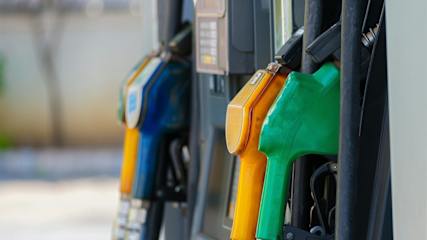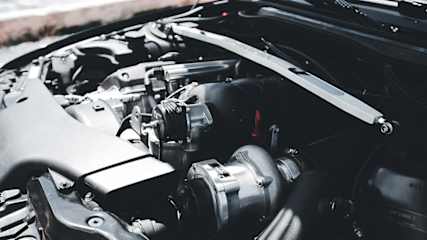How to inspect a used car
By David Morley · 21 Jul 2025
One of the nicest things about buying a brand new car is that it should (on balance) be just about as good as it will ever be. And if there’s something amiss, then there’s the factory warranty to fall back on. But a second hand car? Not so much.Buying a used car requires a smarter, more analytical approach if you’re to avoid buying a dud. And a large part of that approach is knowing how to inspect a used car. Conducting a meaningful pre-purchase inspection sounds simple, but there’s a bit to it. There are two main ways to go about this, too.The less-hassle way is to engage the services of a company that specialises in the pre-purchase inspection, or a mechanic that you trust, to inspect the car in question and give you an idea of what’s wrong with it and how much it might cost to put right.A professional will know exactly what to look for when inspecting a car. This can cost anything up to several hundred dollars depending on where the car is, the mechanic’s hourly rate and how deep a dive you specify for the inspection.The final question of how much for a mechanic to inspect a used car should be factored into the total cost of the transaction at the outset, along with transfer and registration fees and stamp duty.The second method is to save a little money in the first instance and perform the inspection yourself. But get it wrong and those dollars you saved at first might disappear - and then some – if you miss something important. But if you know what you’re looking for, have the basics covered and can tackle the process logically and patiently, then performing your own pre-purchase inspection is definitely doable.To be honest, there’s probably a whole book to be written on this subject, but the basics of this process haven’t really changed over the decades apart from new technology requiring a few new skills.So where do you start on your pre-purchase check of any second-hand car, and what are the hard and fast rules? Just knowing what to check for is a great start. And that starts with the service books.The contents of these should tell you lots about how the car has been cared for and maintained. Missing service books (they should be in the glove box) is a warning sign as this suggests the owner doesn’t take much notice of routine maintenance. Not a good sign.You should also find receipts for any work on the car or new parts that have been fitted. Even a new set of tyres should be evident in the paperwork, so take the time to read it all rather than just flick through it in the driveway.Even before you meet the seller, you should be starting your inspection of the car. How the car looks in the driveway as you pull up to the seller’s house. Does the car sit nice and level side to side? Is it all one colour? Is it parked in a driveway or on the street? Does it look neglected in any way? Is it filthy dirty and full of junk inside? Would you be seen dead in it? All these things can tell you a lot about what you might expect as you dig deeper.And all this is dependent on rule number one of car inspections: Never look at a car in the dark, under artificial light or in the rain.Without good natural light you won’t see the minor variations in paint colour that suggest previous body repairs. Or the little scratches and dings that turn a nice car into an ordinary one. Even a wet car can hide paint or panel damage that you won’t see until it’s dried off in your driveway. If the seller has hosed the car off before you arrive, ask why.Beyond that, the body inspection needs to focus on damage, repairs and paint quality, as well as making sure there’s no rust or missing bits and pieces. Be extra wary of a car sporting fresh, shiny paint rather than the original paint it came with. That new paint could be hiding absolutely anything including poor repairs and rust that will pop out from under the paint in six months’ time to ruin your day. A low-powered magnet (like the ones real estate agents issue for your fridge) can be useful as a tool to make sure there’s no plastic filer under the paint (the magnet won’t stick to plastic as well as it clings to the metal around such a repair).Take a long, hard look down each side of the car, too. Do the panels and trim strips line up? Is the reflection in the paint uniform and not rippled (suggesting bent or badly repaired panels). And is the paint the car’s original colour? Nothing says repaired bodywork like a custom or one-off colour.Let’s move to the mechanical stuff. A look under the bonnet will tell you more than you might think. As well as checking for oil leaks, you can also pull out the dipstick and check the oil level.A car that’s low on oil is probably a neglected one, but there’s more to be learned here. How clean is the oil? It should be a nice, light brown colour. But if it’s black and thick, it either hasn’t been changed in a long time, or the inside of the engine is dirty (another sign of neglect).Of course, this only applies to petrol engined cars; diesels, even when they’re brand new, will turn their fresh engine oil black in seconds. Even so, the level should be correct.While you’re in there, check for oil leaks, loose belts, depleted power-steering fluid and – provided the engine is cold – the level and colour of the coolant.There are exceptions, but if the contents of the radiator is clear, it could be tap water which is more neglect. Most coolant is either green or red and that’s what you want to see. Check the condition of the radiator hoses, too. They should not be showing cracks or have gone hard (with age).Now take a good look at the rest of the car. The tyres should have plenty of tread left and you should also try to check things like the thickness of brake pad material remaining. This can be difficult to do within the confines of a driveway, as can checking things like the condition of the exhaust system and whether the shock absorbers are leaking or not.If it’s not possible to get under the car with a torch to check this stuff, you might have to rely on the other crucial part of any inspection; the test drive.Any used car test drive checklist begins with starting the engine and having a good look and listen without actually going anywhere. Ideally, you’ll start the car with a dead cold engine, and if the seller has already started the car before you arrived, you need to ask why.If possible, organise to come back the next day and start the engine from cold. That’s because a cold start can tell you lots about the engine.Just about any car made in the last 40 years will be fitted with electronic fuel-injection which, if all is well, should allow the car to start immediately and without hesitation, and the engine should settle into a smooth idle pretty much straight away. If it doesn’t, something’s wrong.The cold start is also when you should listen for anything like loose belts or knocks and rattles from the engine and whether there’s any smoke from the tailpipe (there shouldn’t be any).If the owner agrees, you should do the driving on the test drive. An experienced owner will often be able to 'drive around' problems the car may have and you won’t spot them. So doing your own driving is key. Don’t be afraid to let the seller come with you; they may be able to add details about the car as you go.What you’re listening, looking and feeling for is anything the car does wrong. Does it pull up in a straight line when you apply the brakes? If not, why not? Is the acceleration smooth and the engine quiet under load? Does the suspension feel nice and tight or does the car rattle and clang over even small bumps?Don’t forget the detail stuff, either. Make sure all the electrical gear works properly, and don’t forget the cruise-control. The air-conditioning is worth a test, too, to make sure it blows cold and that there are no horrible smells inside the cabin when you turn the air conditioning on.Oh, and make sure there are no warning lights lit up on the dashboard. Even if the seller insists it’s nothing major, a check-engine light on the dashboard automatically means the car is unroadworthy.There are no hard and fast rules on how to test drive a car, but abusing it mechanically is not part of the process. Drive it as you would normally, but don’t forget to give it a burst – where it’s safe to do so – of full throttle to make sure it pulls cleanly and smoothly. Juddering steering or brakes mean big repair bills down the road, and if it doesn’t feel 'right' it probably isn’t.In the old days, there was a used car inspection check list of things you needed to take with you to inspect a any second hand car. Now, it’s pretty much all contained within your mobile phone.You can use the phone’s torch to check out any dark corners of the engine bay, the camera to record details for later, including the VIN and any other information including the registration number and even the licence details of the seller.But don’t ignore this stuff, as a proper pre-purchase check of the car’s legal and ownership status is a must to avoid buying a stolen car, a car that still part-owned by a finance company or even a car that has been repaired after a bad crash.Of course, we’ve kind of focused here on buying a car privately, but, really, the exact same rules apply if you’re buying a used car from a licensed used car dealer.The difference is that, depending on the car, its mileage and age, a dealer (in most parts of Australia) has to provide a warranty which takes a bit of the pressure off you. That said the question of what do you need to test drive a car at a dealership and get it right, remains the same as any other car.







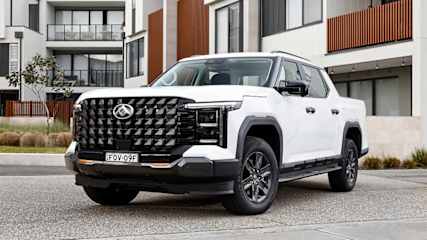
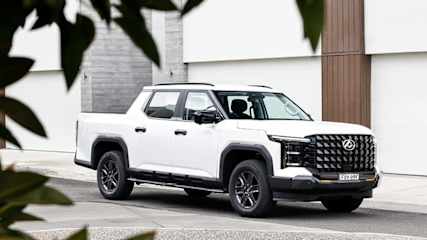
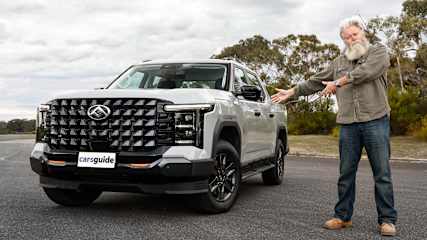
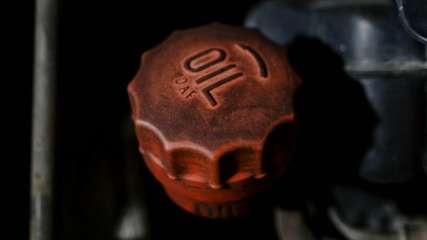

.jpg)


